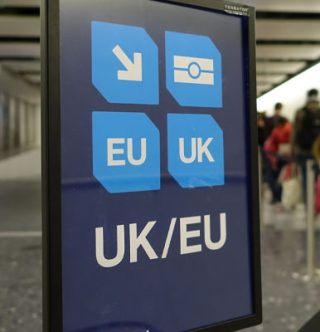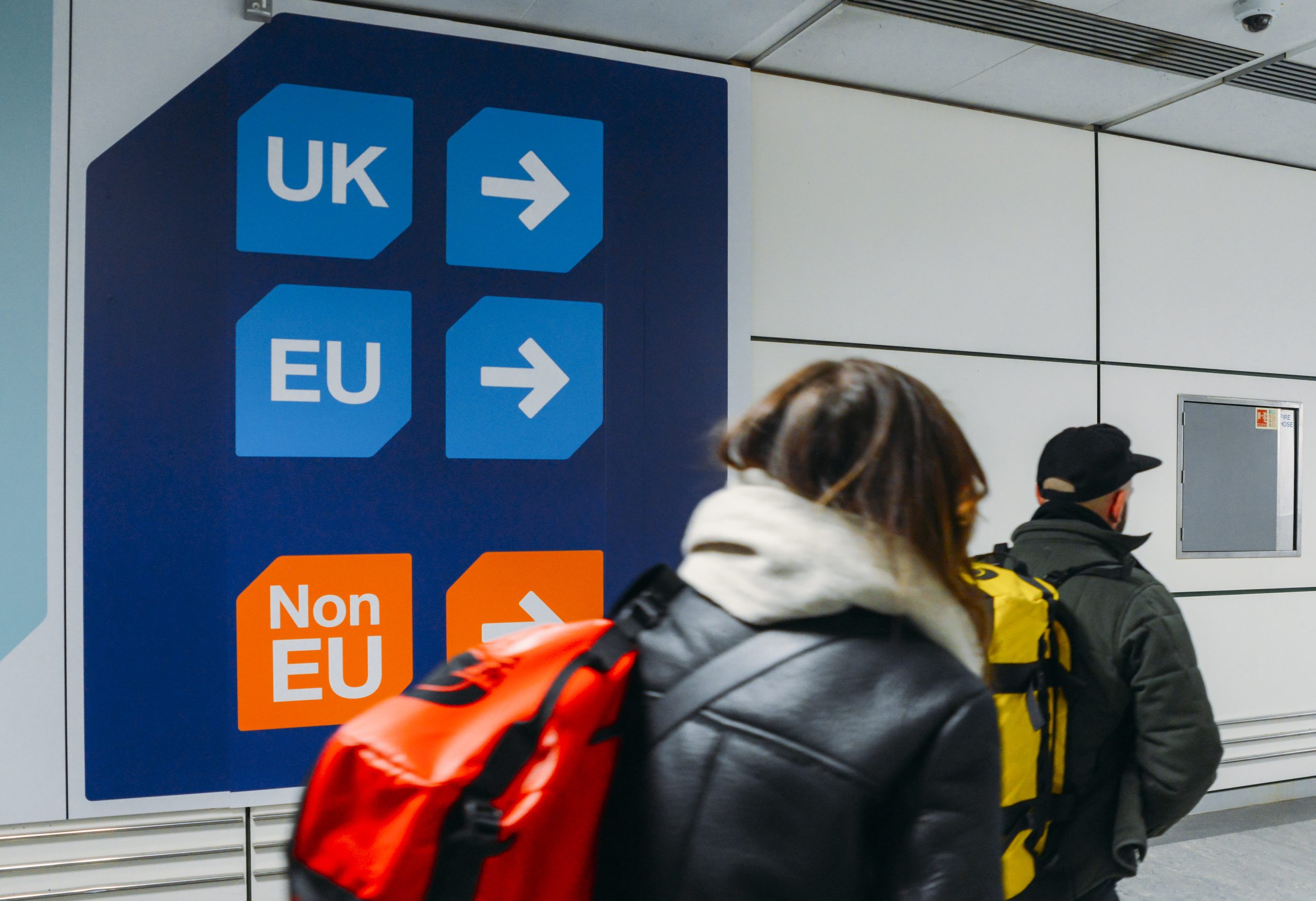
The Home Office had announced that before the start of 2025 the immigration system will be digitalised but it is not without complication. In this article we run you through the basics of the new eVisas and what to do if you are an EU citizen or family member with passport endorsements.
As a part of the Home Office move towards digitalisation, UK Visas and Immigration are developing a digital immigration system that will introduce eVisas in the place of the following physical immigration documents:
- biometric residence permits (BRP)
- biometric residence cards (BRC)
- passport endorsements, such as indefinite leave to enter wet ink stamps
- vignette stickers in passports, such as entry clearance or visa vignettes
Before the start of 2025 everyone who holds physical immigration documents will need to set up a digital UKVI account and activate their eVisa. If you have a biometric residence permit (BRP) that expires on 31 December 2024, the Home Office will contact holders with details about how they can create a UKVI account and access their eVisa. Holder of the remaining types of physical immigration documents will need to create an account later in 2024, everyone can sign up for updates from UKVI.
Options for EU citizens and family members
The situation for EU citizens and their family members who hold indefinite leave to remain or enter in the form of passport endorsements have two options available to them,
- Make a ‘no time limit’ (NTL) application, or
- Make a late supplication to the EU Settlement Scheme
Both options come with its complications and anyone in this situation should consider speaking to a lawyer about it before deciding which route to take.
Currently the UKVI website suggests people in this situation to make a ‘no time limit’ (NTL) application, but does not offer the EU Settlement Scheme as an option even though it is available. The no time limit application is a very complicated process because it requires evidence that indefinite leave was not lost through 2 years continuous absence from the UK. This means that applicants must provide evidence that they have not been away from the UK for more than 2 years at any point during their residence in the UK. Since most holders of a passport endorsement have been living in the UK for a very long time, often decades, substantial documentary evidence of residence must be submitted. For this reason, the EU Settlement Scheme should be considered if you are eligible for settled status.
However, a late application to the EU Settlement Scheme comes with its own complications. The deadline to apply was 30 June 2021 meaning anyone who makes an application now will need to explain the reasons for the delay in applying. These reasons will need to be accepted by the Home Office as ‘reasonable’ before the application can be validated and considered for settled status. When deciding on whether a late application is ‘reasonable’, the Home Office will refer to their own EUSS caseworker guidance. Whilst this Home guidance references late applications from indefinite leave to enter or Remain holder, it does not give a guarantee that such applications will present ‘reasonable’ grounds that will lead to the application being validated and considered for eligibility, even though the Home Office communications initially, whether intentionally or not, discouraged people from applying before the 30 June 2021 deadline.
Recommendations for the Home Office
The Home Office should have been clearer before 30 June 2021 about the consequences of the impending digital immigration system and what it would mean for EU citizens with passport endorsements. Past communications from the Home Office to EU citizens who were resident in the UK by 31 December 2020 and their eligible family members, was that those who held indefinite leave to enter or remain did not need to apply to the EU Settlement Scheme but could do so if they wished. The Home Office communications material often contained the information “You do not need to apply if you have indefinite leave to remain or enter, or you are an Irish citizen, but you can if you want to”.
Now that the immigration system is being digitalised, the above communication is proving to be a real issue. There was no information provided that in the future these persons would be required to make a no time limit application in order to have their indefinite leave to enter or remain confirmed. However, this confirmation is now required to set up an online UK Visa and Immigration account which will be necessary to evidence their rights once the Home Office moves to a digital immigration system. It would be correct to assume that had indefinite leave to enter or remain holders been aware of the need to apply to the Home Office for this purpose, many would have chosen to make a straightforward application to the EU Settlement Scheme before the deadline, rather than make a potentially more complicated and inconvenient no time limit application.
Whilst future immigration policy may not have been fully formed at the time when the EU Settlement Scheme communications were being prepared and promoted, it is likely to have been in the planning stages. Yet, EU citizens and their eligible family members were not provided with sufficient information to be fully informed about the very important decision on whether to apply to the EU Settlement Scheme and become beneficiaries of the Withdrawal Agreement.
While it is open to these persons to make a late application to the EU Settlement, the Home Office caseworker guidance is not helpful and carries a risk that any such applications may be rejected because the reasons for applying late will not be considered reasonable. We believe there is a case to introduce a presumption into the Home Office caseworker guidance that indefinite leave to enter or remain holders have reasonable grounds for making a late EU Settlement Scheme application unless there are clear reasons why this should not be the case.
It is also recommended that the Home Office website at the online immigration status (eVisa) and Media factsheet: eVisas pages, should alert indefinite leave to enter or remain holders to the possibility of making a late application to the EU Settlement Scheme as well as or as an alternative no time limit application. As well as including this information into the no time limit application process.
If you are an EU citizen or a family member and are weighing up a no time limit or EU Settlement Scheme application, we recommend that you seek advice from an immigration lawyer before making a decision.
-

eVisa: A guide to understanding the UK’s new digital immigration system
Written by: Chris Benn
The UK is transitioning to a fully digital immigration system, replacing physical immigration documents with an online record known as an eVisa. This change will affect millions of people, making it crucial to understand how to navigate the new system effectively. In this article we go through what this change means and what steps you can […]Read article -

EU Settlement Scheme five years on: Updates to pre-settled status
Written by: Caroline Echwald
March 2024, marked five years since the full opening of the EU Settlement Scheme which granted millions of European nationals and their family members the right to live in the UK after Brexit came into effect. The scheme is for EU, EEA, and Swiss citizens who were living in the UK by 31 December 2020 […]Read article -

Planning a visit to the UK? Here’s what you need to know about the new Electronic Travel Authorisation (ETA)
Written by: Caroline Echwald
If you’re planning to visit the UK and you’re from a country that doesn’t require a visa for short stays, there’s an important update you should be aware of; the UK is introducing the Electronic Travel Authorisation (ETA) scheme. This new requirement is part of the UK’s effort to improve its border security and will soon apply […]Read article
